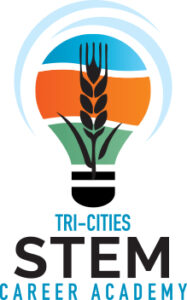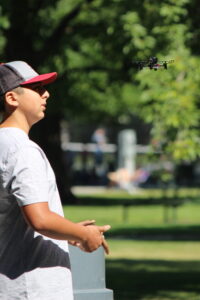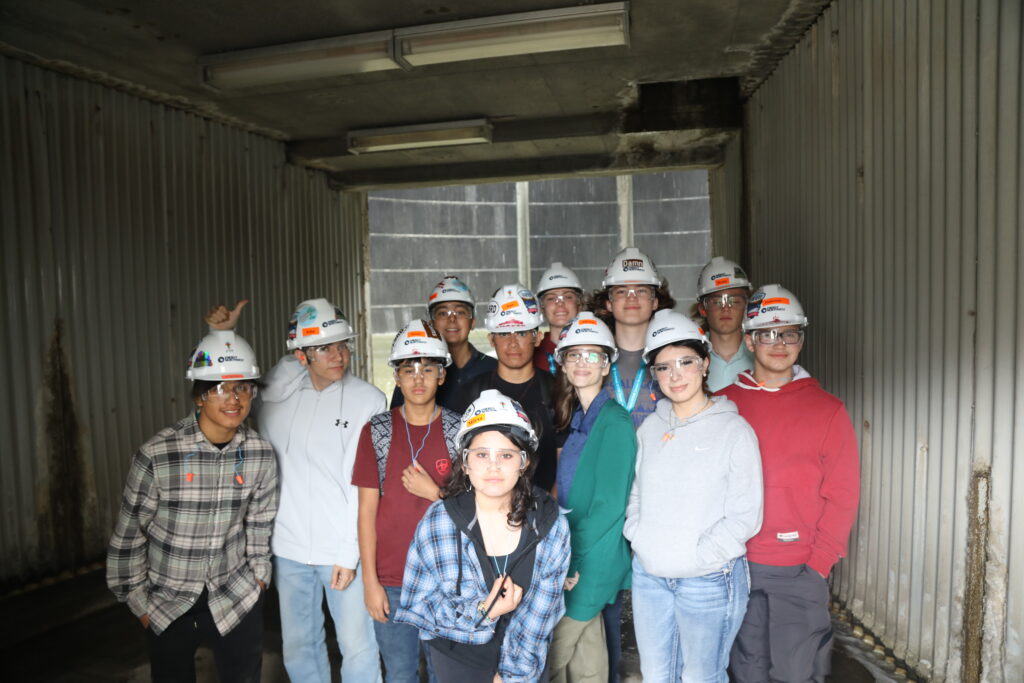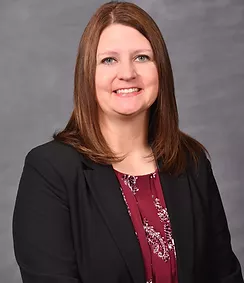Academy provides students with hands-on exploration of STEM-related careers
By Kara Kaelber
 In the heart of Washington state, where wheat fields stretch to the horizon and renewable energy powers communities, a unique partnership has blossomed to shape the future of agriculture and energy. The Benton and Franklin conservation districts, in collaboration with Benton PUD, the Washington Grain Commission (WGC), and a consortium of industry leaders and educational institutions, have pioneered the Tri-Cities Energy and Agriculture Career STEM Academy, a new initiative aimed at educating high school students about science, technology, engineering, and mathematics (STEM)-related careers in agriculture and renewable energy.
In the heart of Washington state, where wheat fields stretch to the horizon and renewable energy powers communities, a unique partnership has blossomed to shape the future of agriculture and energy. The Benton and Franklin conservation districts, in collaboration with Benton PUD, the Washington Grain Commission (WGC), and a consortium of industry leaders and educational institutions, have pioneered the Tri-Cities Energy and Agriculture Career STEM Academy, a new initiative aimed at educating high school students about science, technology, engineering, and mathematics (STEM)-related careers in agriculture and renewable energy.
Modeled after the successful Hydropower and STEM Academy hosted by Chelan PUD and the Foundation for Water and Energy Education in Wenatchee, the Tri-Cities Energy and Agriculture Career STEM Academy emerged from a pressing need to cultivate a skilled and diverse workforce capable of addressing the challenges of an aging agricultural community and ever-changing renewable energy technologies. Recognizing the critical intersection between agriculture and energy, the program aims to bridge the gap between young minds and rewarding STEM careers.

By partnering with industry professionals and academic advisors, the program’s core mission is to provide high school students with a hands-on exploration of various STEM-related careers and a personalized approach to career development tailored to each student’s interests, skills, and goals. From trade schools and apprenticeships to community colleges and four-year degrees, students learn about the multitude of pathways available to them for entering these dynamic fields.
Beyond providing students with practical skills and knowledge, the STEM Academy serves as a testament to the power of collaboration between industry, education, and conservation organizations. By fostering partnerships between these stakeholders, the program creates a holistic learning environment that equips students with the tools they need to succeed in these rapidly evolving career fields. Moreover, the STEM Academy plays a crucial role in nurturing the next generation of agricultural leaders and innovators. In doing so, it ensures a brighter, more sustainable future for both the agricultural industry, renewable energy industry, and Eastern Washington.
Part of the WGC mission is long-term profitability and sustainability for the small grains industry, and education is one of the foundational strategic pillars that supports the mission. Partnering with the WGC to bring the new STEM Academy to the Tri-Cities fit with the commission’s educational objective to cultivate the next generation through outcomes-based K-12 agricultural education curriculum and programming. The WGC also partners with the Franklin Conservation District to bring Washington fourth and fifth grade students the popular Wheat Week program. Providing additional learning opportunities for high school students is the next step in fostering an understanding of, and interest in, farming and agriculture in our state’s youth.
In its inaugural year (June 2023), the STEM Academy welcomed 16 high school students from diverse backgrounds, representing multiple school districts across the region. Over the course of four days, these students embarked on a journey of discovery, engaging in hands-on activities such as building hydropower models, flying drones, and racing solar cars. Additionally, they embarked on educational field trips to prominent facilities including Ice Harbor Dam, CHS Sun Basin Growers grain terminal, and Energy Northwest’s Columbia Generation Station.

Looking ahead, the STEM Academy aims to expand and enhance its curriculum to offer even more enriching opportunities for students. Plans for this year’s STEM Academy include extending the program duration from four to five days and introducing exciting topics such as precision agriculture using drones and robotics for monitoring and harvesting produce, building model hydrogen cars, and touring Lamb Weston’s Innovation Center. These additions will further immerse students in the cutting-edge technologies and practices shaping the future of agriculture and renewable energy.
The Tri-Cities Energy and Agriculture Career STEM Academy for this year is scheduled to take place from June 24 to 28, hosted at the UA Local 598 Plumbers and Pipefitters Union in Pasco. Each student is required to pay a tuition fee of $75, which will be reimbursed upon attendance for all days of the academy. On the final day of the program, students will engage in creating a comprehensive “high school and beyond” plan, focusing on a career path they have explored during the academy. The week will conclude with a luncheon, bringing together students, parents, and industry representatives to discuss career possibilities further, followed by a graduation ceremony and celebratory event.
The STEM Academy is aimed at educating and empowering an upcoming generation of leaders in agriculture and energy. By providing hands-on learning experiences, mentorship opportunities, and forging industry partnerships, this program exposes students to the essential skills, knowledge, and passion required to excel in the realms of agriculture, clean energy, and conservation management. As we cast our gaze towards the future, it becomes evident that initiatives such as the STEM Academy will remain pivotal in shaping a more sustainable and robust agricultural sector for future generations.
This article originally appeared in the May 2024 issue of Wheat Life Magazine.

Kara Kaelber
Kara Kaelber is the assistant manager for the Benton and Franklin Conservation District and has been with the Franklin Conservation District since 2005, where she coordinates the Salmon in the Classroom, Drain Rangers & Jr. Drain Rangers as well as the Wheat Week Programs around Washington State. During the summer, Kara roams around the state putting on teacher workshops in Project WET, Project WILD and Project Learning Tree. Kara is a certified teacher and Program Administrator. She holds a Bachelor of Arts in Humanities from Washington State University and a Master of Arts in Educational Leadership from Heritage University. Kara is also a member of AgForestry Class 37 and a recipient of the Carol Mercer Inspiration Award. Read more about Wheat Week.
